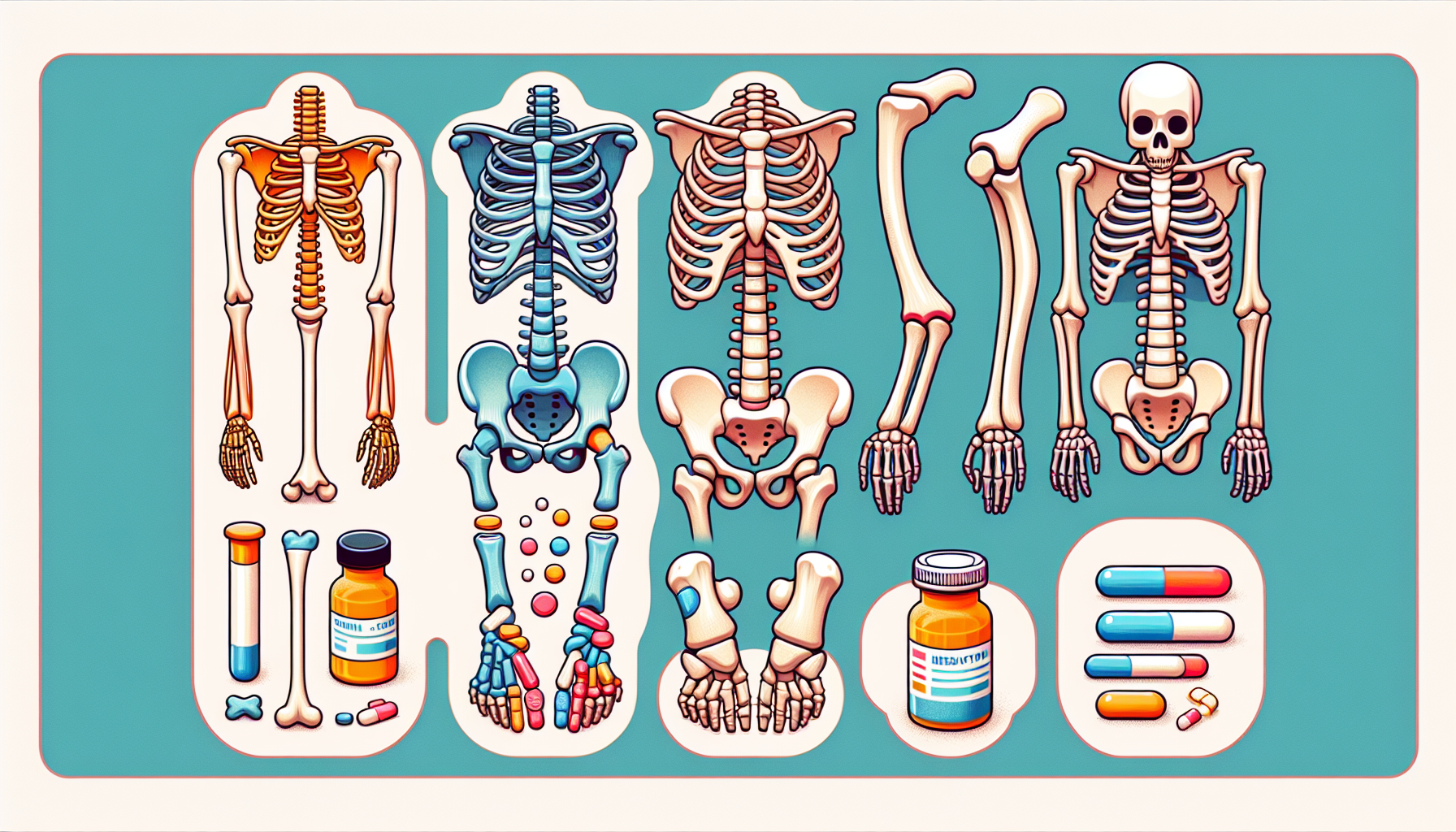Bone health is a crucial aspect of our overall well-being, often overshadowed by more immediate health concerns. However, the integrity of our bones is vital for mobility, protection of internal organs, and the regulation of mineral balance. One of the less discussed yet significant factors affecting bone density is medication. In this comprehensive analysis, we will delve into the various ways in which medication can influence bone density, explore strategies to mitigate negative impacts, and highlight the importance of maintaining strong bones for long-term health.
Medications’ Impact on Bone Health
Medications can have profound effects on bone health, positively or negatively influencing bone density. Bone density refers to the amount of mineral matter per square centimeter of bones, a crucial indicator of bone strength and health. Several classes of medications can affect this delicate balance.
Glucocorticoids
A commonly prescribed class of drugs known as glucocorticoids, used to treat conditions like asthma, arthritis, and lupus, can lead to decreased bone formation and increased bone resorption. This reduction in bone density can elevate the risk of fractures, making it essential to monitor bone health closely when using these medications.
Anticoagulants and Proton-Pump Inhibitors
Other medications, such as anticoagulants and proton-pump inhibitors, might impair the body’s calcium absorption or metabolism, essential for bone strength. Long-term use of these medications may necessitate additional strategies to support bone health.
Antidepressants and Anticonvulsants
Antidepressants and anticonvulsants have also been associated with changes in bone density. These medications can alter hormone levels, which are critical regulators of bone metabolism.
Supporting Bone Health While on Medication
While certain medications are necessary for managing various health conditions, there are strategies to support bone health concurrently. A holistic approach, encompassing diet, exercise, and lifestyle changes, is recommended to mitigate medication-induced bone density loss.
Nutritional Support
Ensuring an adequate intake of bone-supporting nutrients, such as calcium and vitamin D, is fundamental. These nutrients work synergistically to maintain bone density and overall health. The Role of Exercise in Enhancing Bone Mineral Content provides additional insights into how exercise complements nutritional intake to support bone health.
Exercise
Physical activity, particularly weight-bearing and resistance exercises, can help build and maintain bone density. Regular exercise stimulates bone formation and strengthens the supporting muscles, which can help offset the effects of medications on bone health.
Monitoring and Adjustments
Regular monitoring of bone density through screenings can help detect any changes early, enabling timely adjustments to medication or the incorporation of bone-supporting supplements.
The Role of Healthcare Providers
Healthcare providers play a pivotal role in managing the impact of medication on bone density. They can adjust medication dosages, recommend supplemental interventions, and provide guidance on lifestyle modifications to support bone health. Strategies for Managing Bone Health in Diabetic Patients offers an example of how targeted strategies can be employed in specific patient populations.
Medication Alternatives and Adjunct Therapies
In some cases, alternative medications with less impact on bone density may be available. Additionally, adjunct therapies, such as physical therapy or targeted exercises, can be integrated into a patient’s treatment plan to support bone health.
External Resources Offering Further Insight
To further our understanding of how medications influence bone density, consider these niche resources that provide in-depth information:
- The National Osteoporosis Foundation offers resources on the prevention of bone loss and the role of medications in bone health.
- Bone Health and Osteoporosis: A Report of the Surgeon General provides comprehensive information on bone health, including the effects of medications.
- The International Osteoporosis Foundation presents research and guidelines on managing bone health in the context of medication use.
- An academic article on PubMed Central discusses the biochemical pathways through which medications can alter bone density.
The Big Picture
Understanding the interaction between medication and bone density is just one aspect of a comprehensive approach to bone health. For a broader perspective, the Medication & Supplements section on Avix Health provides valuable insights into how various substances affect our bodies.
Conclusion
Medications are an essential component of modern healthcare, but their impact on bone density cannot be overlooked. By combining medical management, nutritional support, and lifestyle interventions, individuals can protect their bone health while effectively managing their medical conditions.
Incorporating strategies to counteract the effects of medication on bone density is crucial for overall health and well-being. Regular consultations with healthcare providers, staying informed about the latest research, and adopting a proactive approach to bone health are key to maintaining strong bones for a lifetime.



